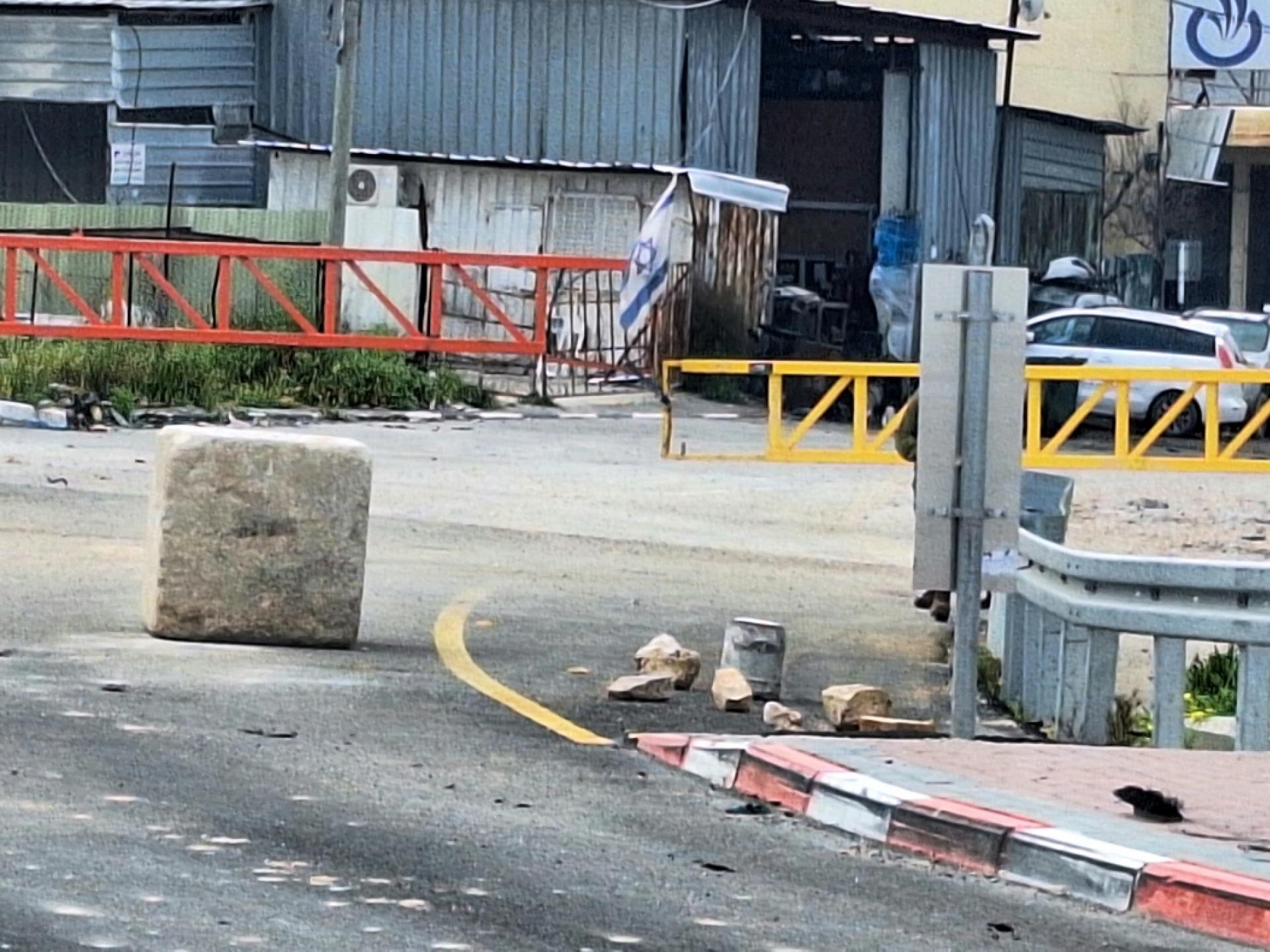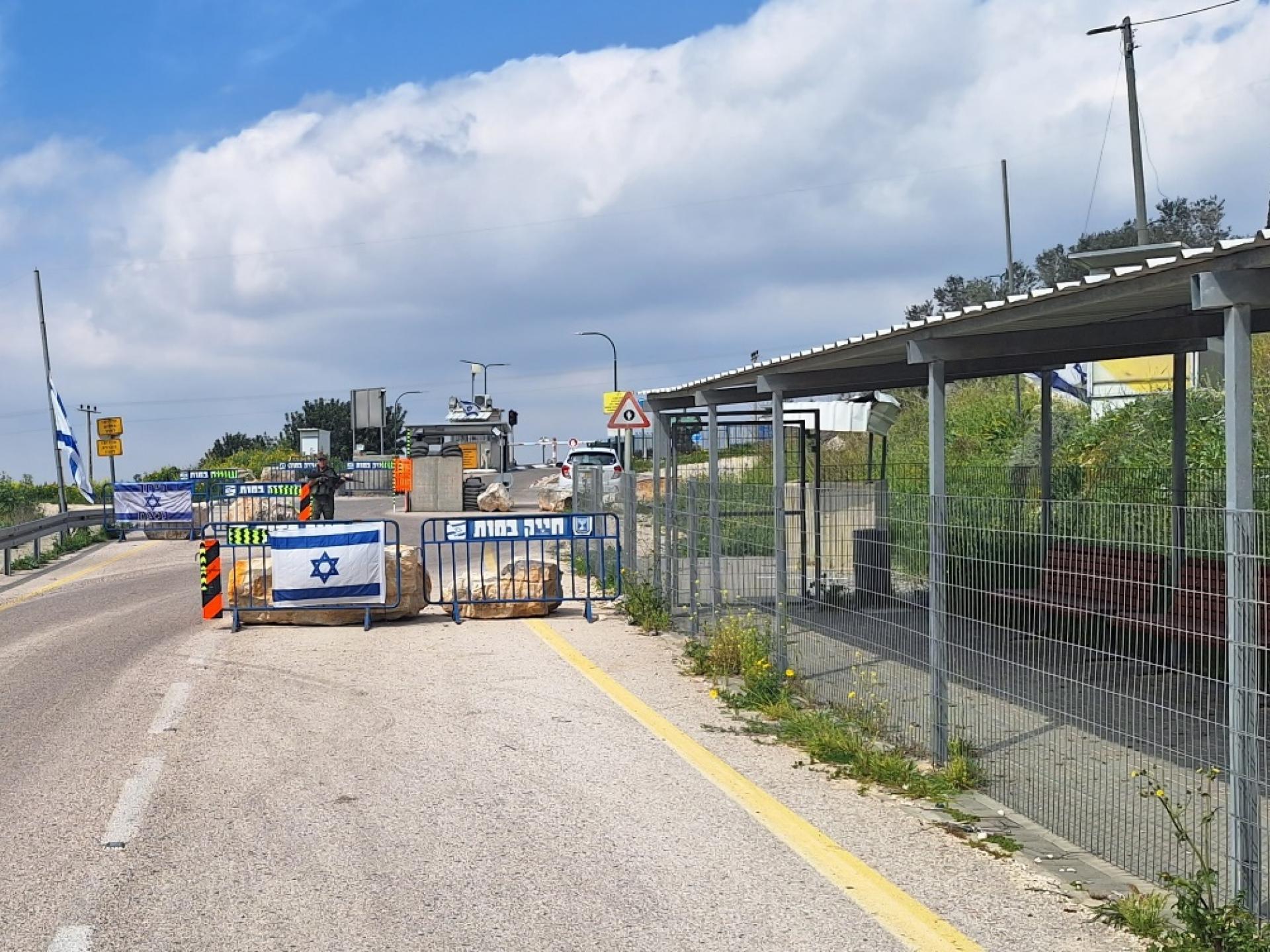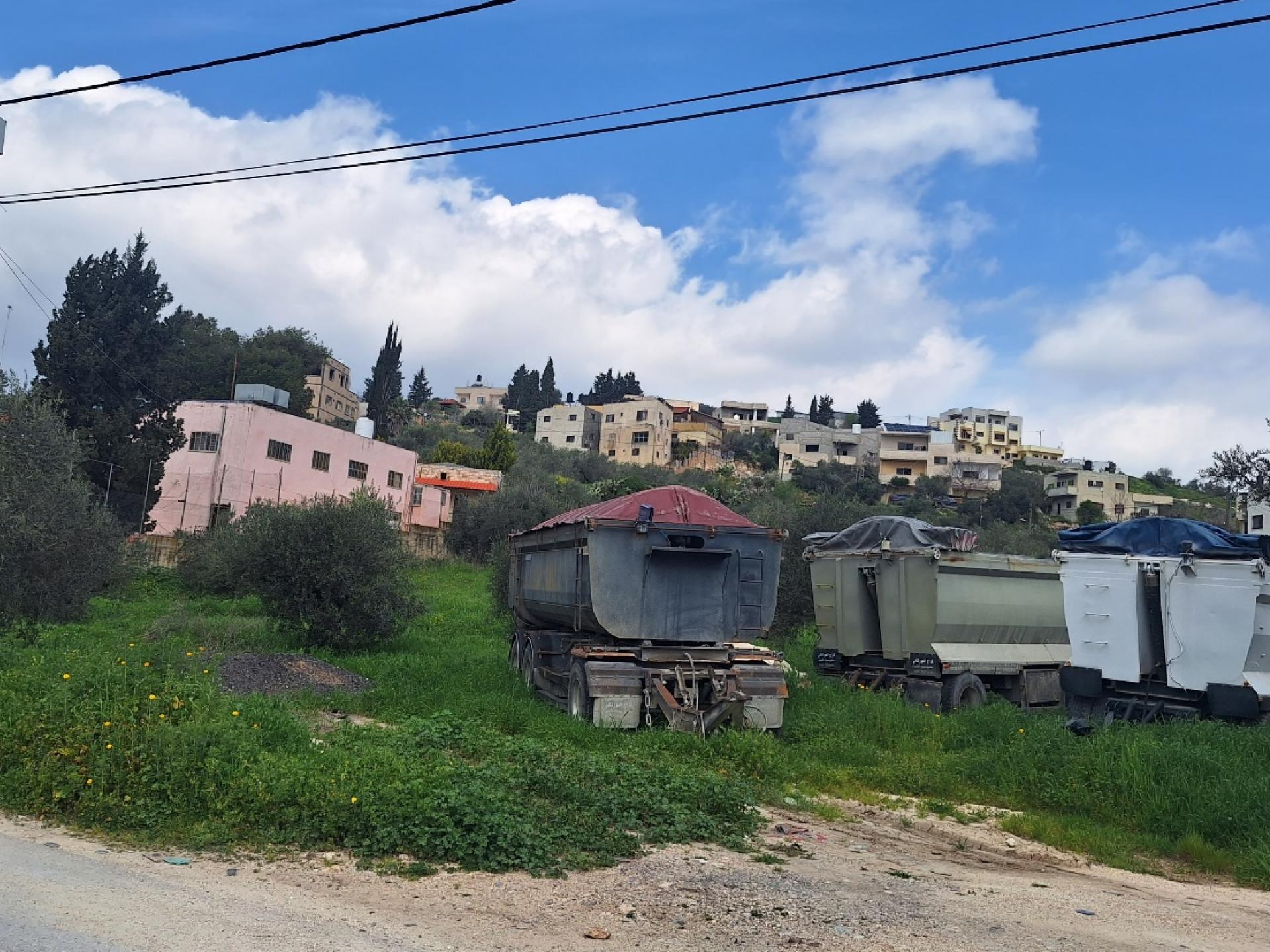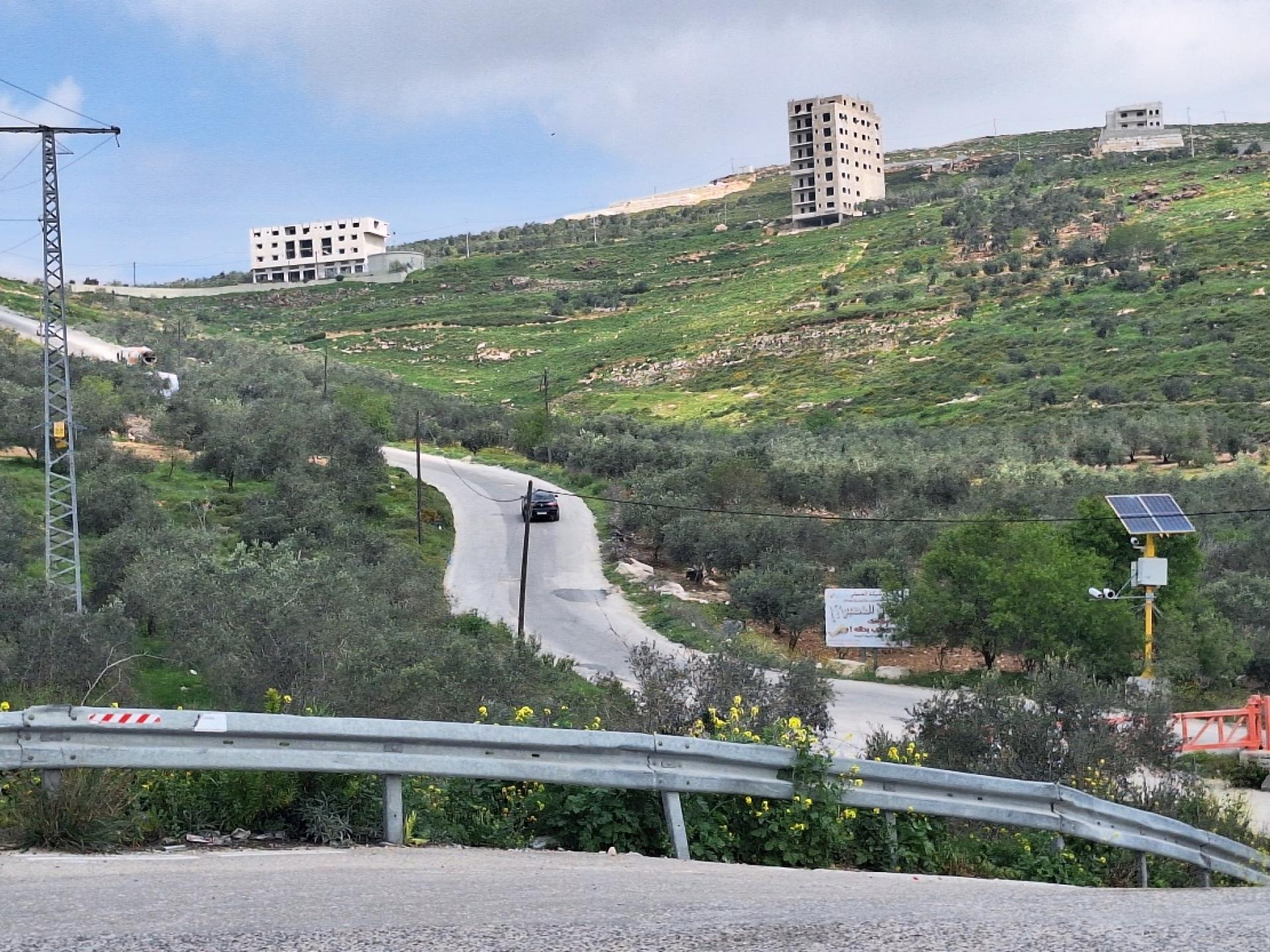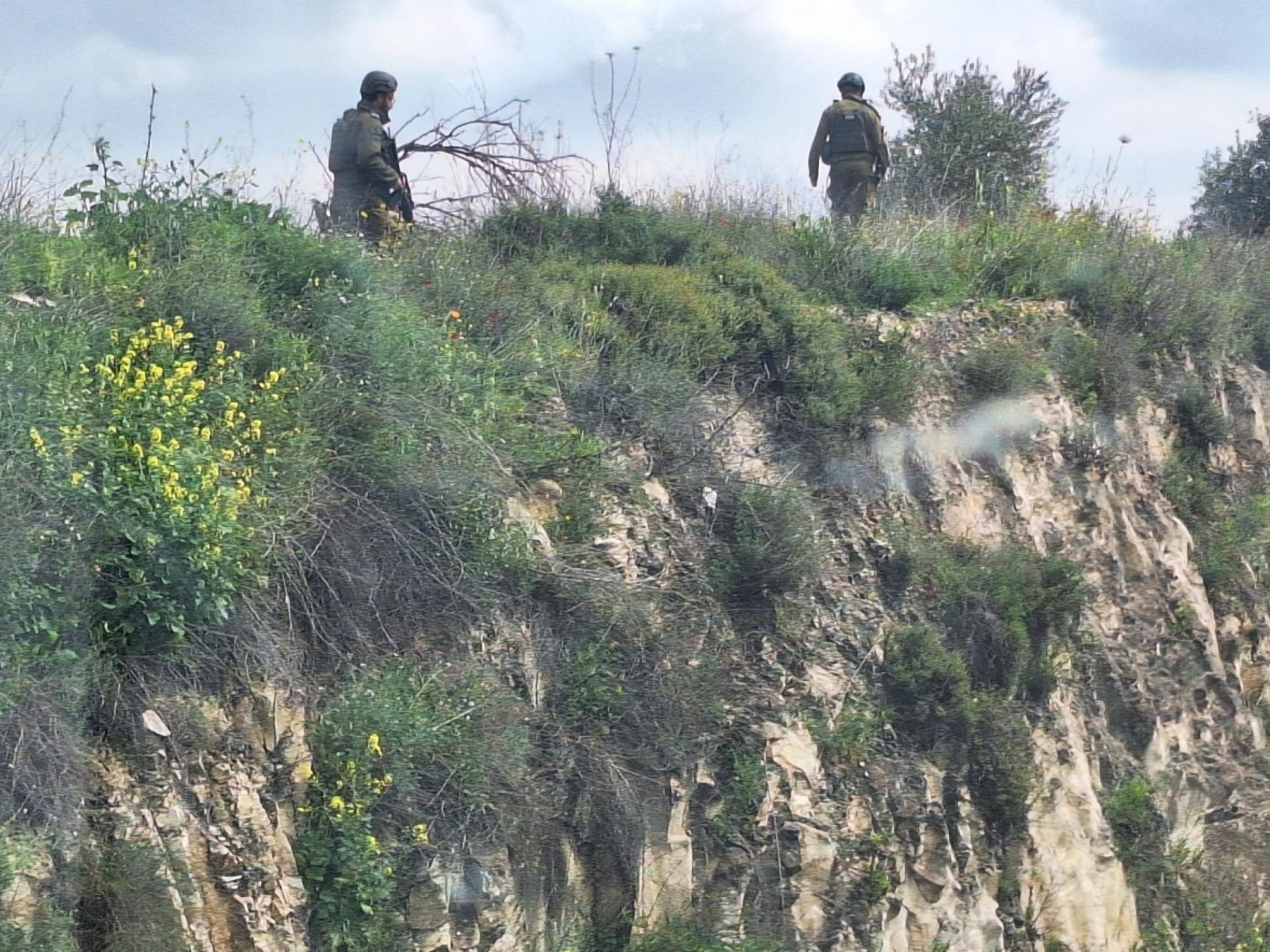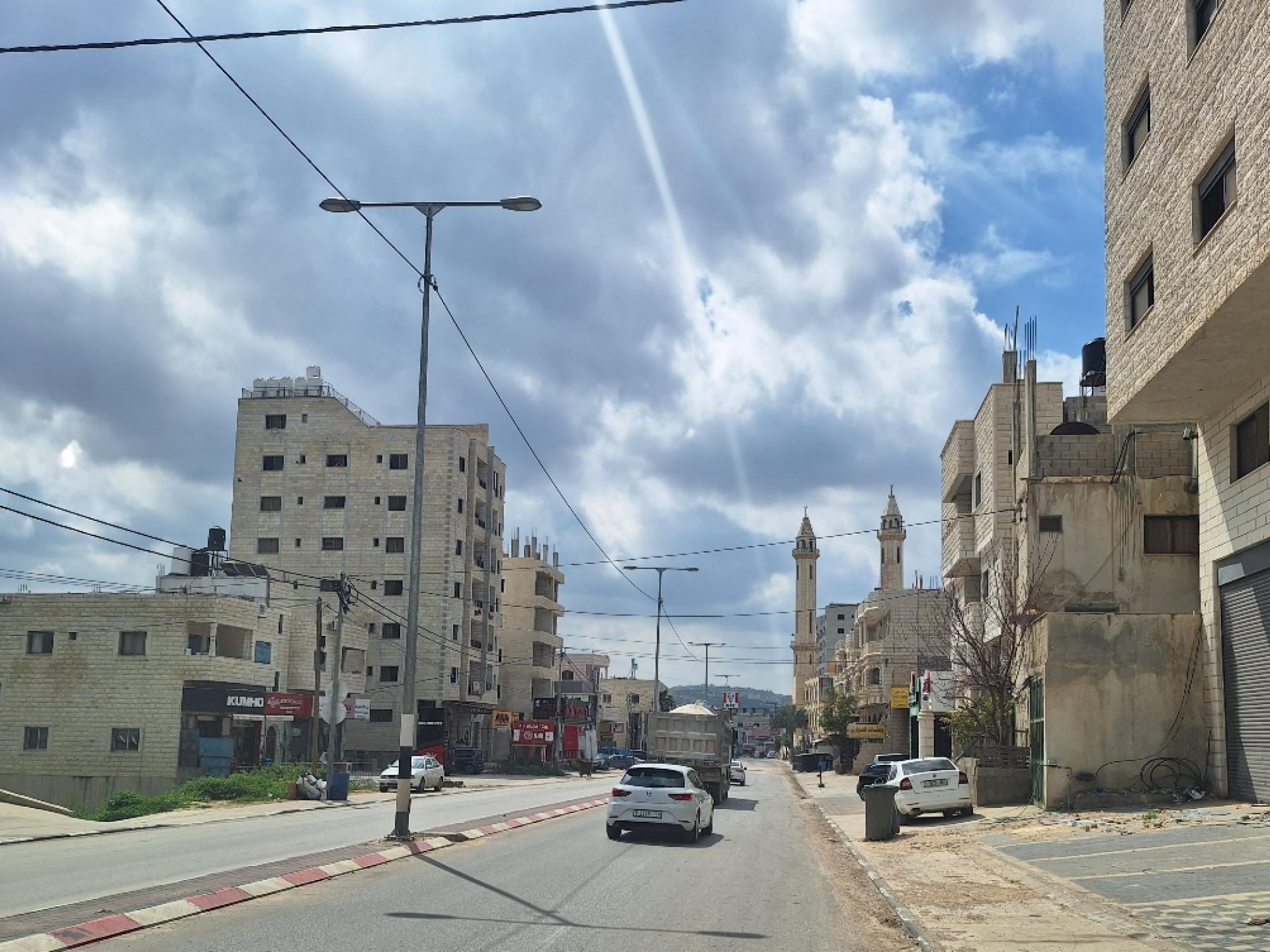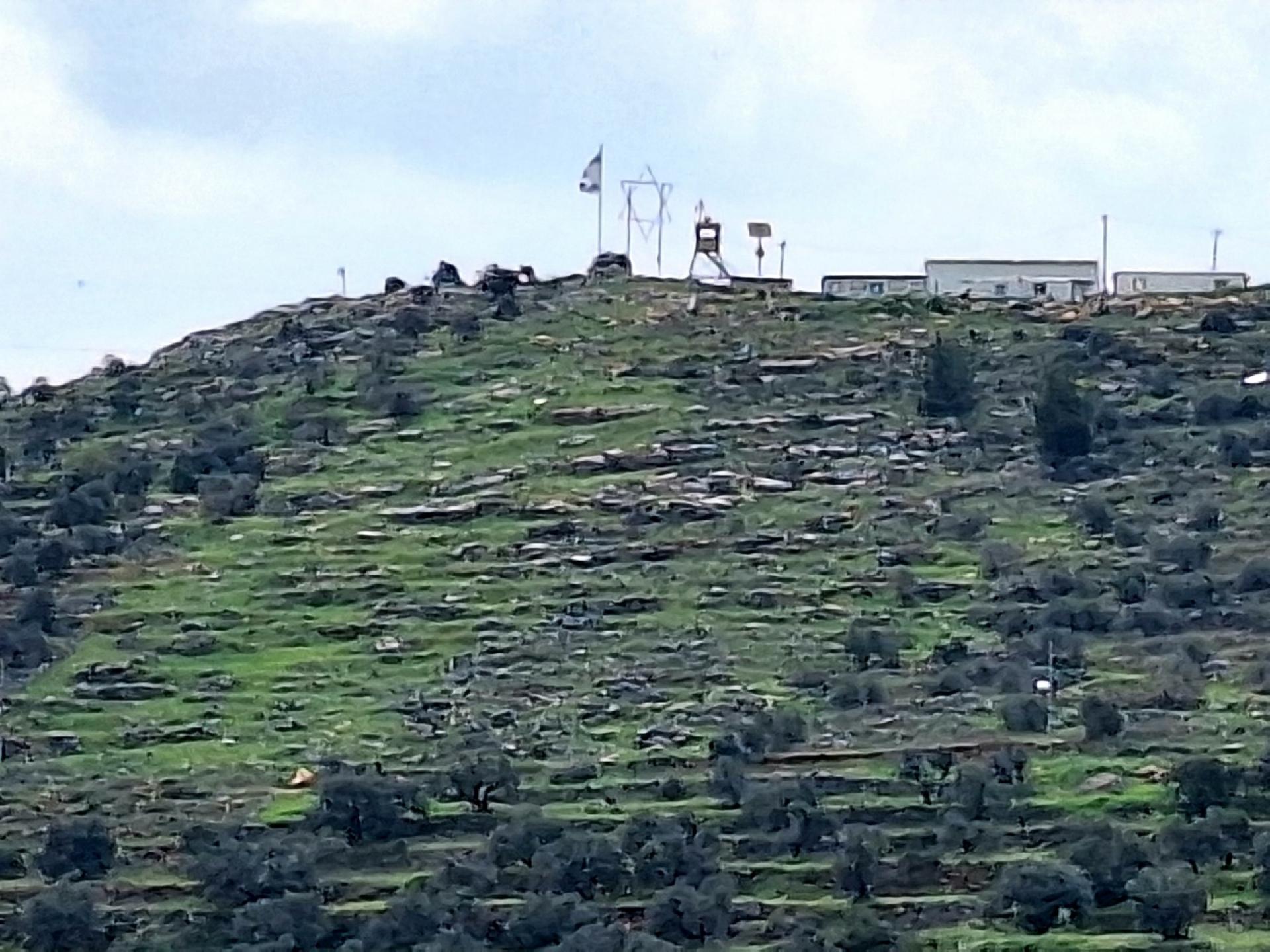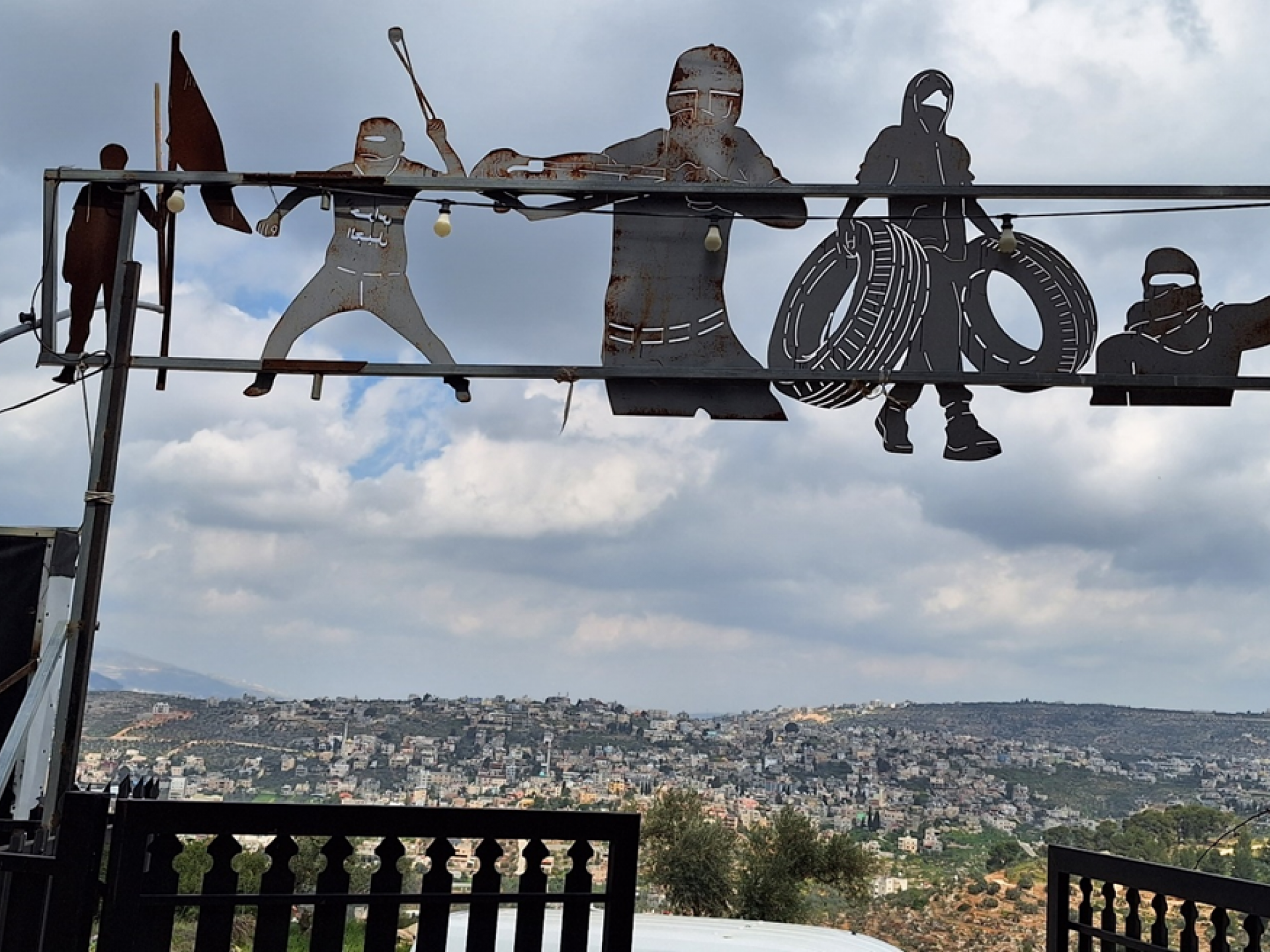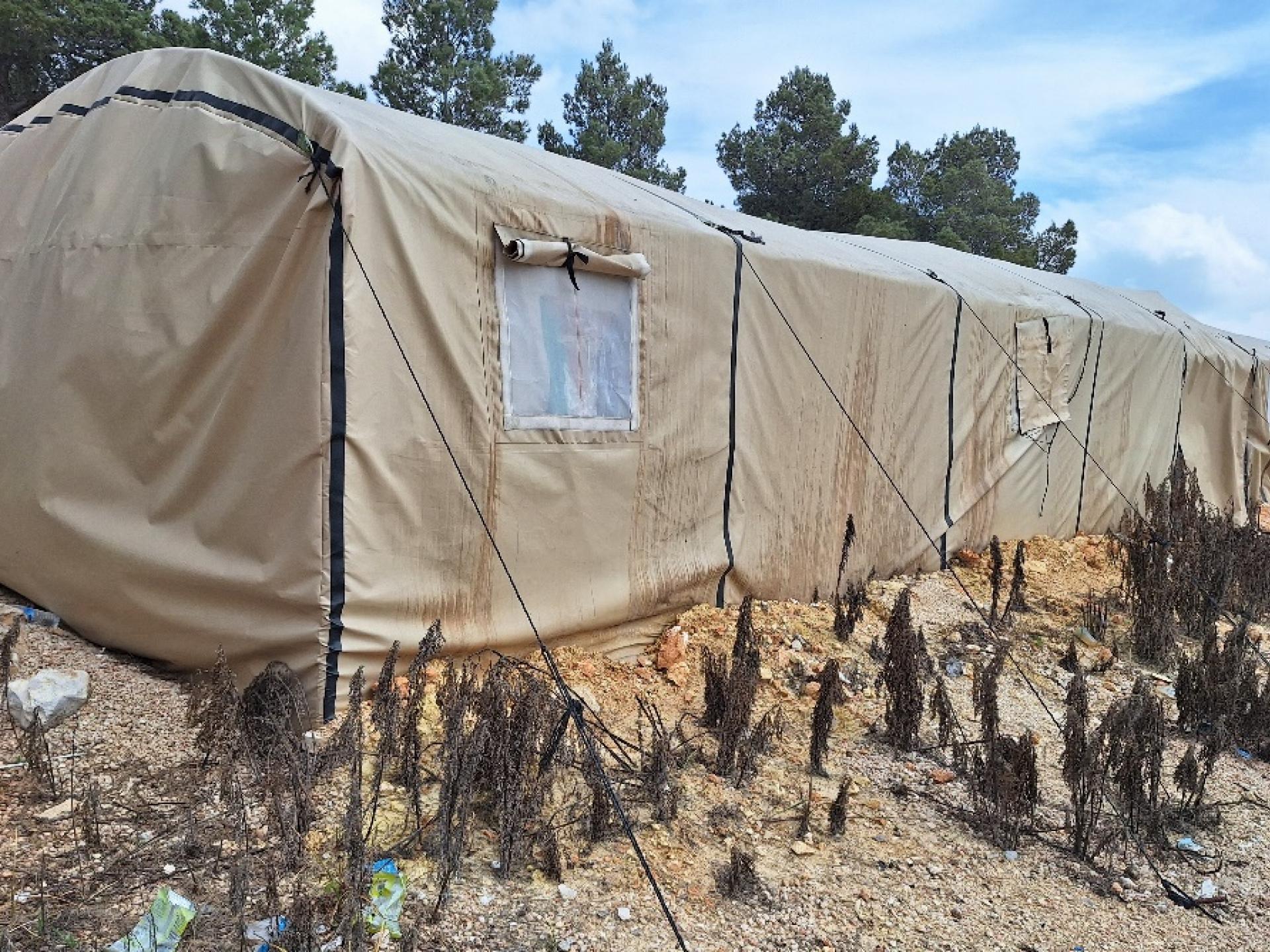Central Bank: the entrances to the Palestinian villages and towns are blocked and soldiers are on the hills and at the entrances
First week of Ramadan
Habla - We visited 'A in the nursery. He had good news: Israel permitted him to engage 2 extra workers in addition to the 2 he originally employed. But, the failure to open the agricultural checkpoint of Habla makes it very difficult for the nursery owners. They are not allowed to bring plants and items that are used in the nurseries to the Qalqilya checkpoint. The only checkpoint through which they are permitted to bring merchandise has been closed since the beginning of the war.
Azzun - We met Z. at the entrance to Nebi Elias. The exit from Nebi Elias toward the main road is closed with a yellow checkpoint. I gave him the sum of money which had been collected by our friends and many packages. He isn't feeling well and, as long as the war continues, he cannot get to the hospital to meet the doctor who treats him.
We continue driving east on Route 55.
On the right is Havat Gilad. A huge flag is stretched over the entire building. Around the compound is a curly fence, to make it clear who is the owner of the house here.
We continue our way to the right, from highway 55 to highway 60.
Kfar Qaddum - We decided to observe the road which has been blocked for use by the residents of Kfar Qaddum on the side of Kedumim. In our tours and visits to Kfar Qaddum we saw the road from the side of the village where demonstrations were held on Fridays and Shabbat. This time, we wanted to see the other side of the road which is closed to the Palestinians but is used only by the residents of Kedumim.
Checkpoint and Israeli flag. An older soldier came over to check who we were and what we were looking for in the area. He didn't get answers, but a conversation developed. He lives in Kedumim and volunteers to guard the entrance. I asked him about his neighbors in Qaddum: "The army doesn't enter Kfar Qaddum as long as they don't make trouble. Whoever knows what is really happening on the ground could only gag. How many times have I seen soldiers with drawn weapons on the roofs of the houses and how many times have I seen grenades thrown into the village and the houses.?
We continued beyond the main road to Nablus which is closed to the Palestinians. We saw the final houses of Kfar Qaddum. Living here is a death trap.
The entrance to Burin is blocked.
On the ridge of the hill on the right there are 2 soldiers - there is no rest and no sleep for the protectors.
We reach Huwarra. Only a few vehicles on the main road; stores are open, but no one is there. We stop next to a small business that duplicates keys. The owners tell us that they have had no work since the beginning of the war. The lack of permits to work in Israel affects the whole city.
Beita
We turn left towards Beita. Mustafa calls his friends and asks them to join us for a tour of their city. After a short consultation between them, they decide not to join us, as they don't want to be seen. Fear rules everywhere. All during Friday demonstrations took place here because of the stealing of lands that took place when the settlers built Evyatar, without permission and with no interference from the authorities. Huge amounts of money were invested in preparing the area, putting up buildings and paving roads. Where did this money come from? Fund-raising project by an NGO registered in the US.
Even though they received orders to destroy, the criminal settlers continue to live there and to increase the building projects; it is well known that most of them have houses in a neighboring settlement. A long term dismissal of the government institutions when everyone knows who really gives the instructions.
Evyatar - A flag and a star of David and there is now a new illegal outpost. The outpost was built in 2021, after a terrorist attack at the Tapuach crossroads on the lands of Yitma and Beita.

